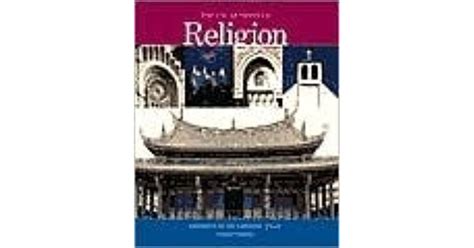A Quote by Friedrich Nietzsche
A great value of antiquity lies in the fact that its writings are the only ones that modern men still read with exactness.
Related Quotes
In order to teach a course in the history of Western religious thought, I had to do a great deal of research in the writings within the Judaic and Christian traditions and I was astonished to find in those writings philosophical thought of great power and sophistication. These writings completely blew away all my opinions about what I had taken to be the irrationality or immaturity of religious ideas, opinions which were and still are fashionable in many intellectual and literary circles today.
I know of no other practise which will make one more attractive in conversation than to be well-read in a variety of subjects. There is a great potential within each of us to go on learning. Regardless of our age, unless there be serious illness, we can read, study, drink in the writings of wonderful men and women. It is never too late to learn.
Theosophy occupies a central place in the history of new spiritual movements, for the writings of Blavatsky and some of her followers have had a great influence outside of her organization. … The importance of Theosophy in modern history should not be underestimated. Not only have the writings of Blavatsky and others inspired several generations of occultists, but the movement had a remarkable role in the restoration to the colonial peoples of nineteenth century Asia of their own spiritual heritage.
People think that they have no right to judge a fact - all they have to do is to accept it. Thus from the moment that technics, the State, or production, are facts, we must worship them as facts, and we must try to adapt ourselves to them. This is the very heart of modern religion, the religion of the established fact, the religion on which depend the lesser religions of the dollar, race, or the proletariat, which are only expressions of the great modern divinity, the Moloch of fact.
The more I read, the less I admire modern theology. the more I study the productions of the new schools of theological teachers, the more I marvel that men and women can be satisfied with such writings. There is a vagueness, a mistiness, a shallowness, an indistinctness, a superficiality, an aimlessness, a hollowness about the literature of the 'broader and kinder systems', as they are called, which to my mind stamps their origin on their face. They are of the earth, earthy.
It is India that gave us the ingenious method of expressing all numbers by means of ten symbols, each symbol receiving a value of position as well as an absolute value; a profound and important idea which appears so simple to us now that we ignore its true merit. But its very simplicity and the great ease which it has lent to computations put our arithmetic in the first rank of useful inventions; and we shall appreciate the grandeur of the achievement the more when we remember that it escaped the genius of Archimedes and Apollonius, two of the greatest men produced by antiquity.
The birth of a new fact is always a wonderful thing to experience. It's dualistically called a "discovery" because of the presumption that it has an existence independent of anyone's awareness of it. When it comes along, it always has, at first, a low value. Then, depending on the value-looseness of the observer and the potential quality of the fact, its value increases, either slowly or rapidly, or the value wanes and the fact disappears.
There is no patent recipe for getting good citizenship. You get it by applying the old, old rules of decent conduct, the rules in accordance with which decent men have had to shape their lives from the beginning .. fundamental precepts, put forth in the Bible and embodied consciously or unconsciously in the code of morals of every great and successful nation from antiquity to modern times.








































